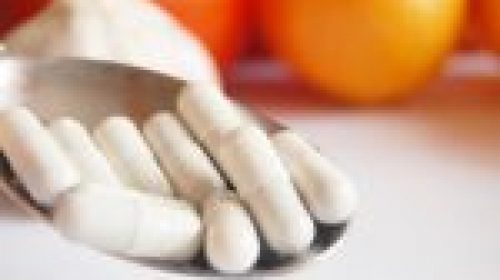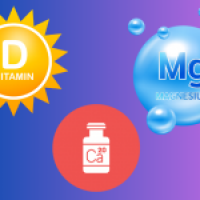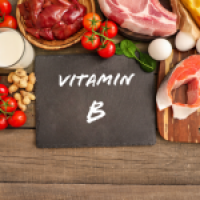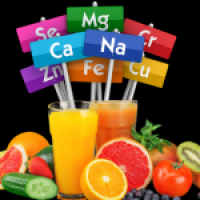CoQ10 / Ubiquinol Benefits & Side Effects

CoQ10 / Ubiquinol Benefits & Side Effects
Are you are a person who keeps up with the latest health news? If so, you have probably heard a lot about the benefits of Ubiquinol supplements.
Coenzyme Q10 (Ubiquinone) and Ubiquinol</em> may sound like two very different things, but they are very similar – almost the same, one could say – but not quite. Essentially, the same substance, CoQ10 and Ubiquinol differ slightly, and as a result, they have very different functions in our bodies. We will get into the differences in just a bit, but before we do, let’s look at what CoQ10 is.
What is CoQ10?
CoQ10, also known as Coenzyme Q10, exists as a vitamin-like substance in the entire human body. Although it is not classified as a vitamin, the human body can synthesize it. Even though we can produce CoQ10, we are less capable of producing CoQ10 the older we become.
What is the function of CoQ10, and in which sources can it be found?
CoQ10 serves a critical function in the synthesis of energy. This means the conversion / metabolism of fats and carbohydrates to a usable form of energy known as ATP. The less CoQ10 we have, the less energy we have at a cellular level.
Low Coenzyme Q10 levels in the body can lead to a number of problems, from heart failure to high blood pressure, to macular degeneration, to gum disease, to muscle weakness, etc.
CoQ10 is most concentrated in organs like the heart, kidneys, pancreas, and liver that require greater amounts of energy. Thus, some of the most dangerous conditions from a CoQ10 deficiency are related to these organs.
Is It Coenzyme Q10 or Ubiquinol?
Now that we know what CoQ10 and Ubiquinol are let’s look at the actual distinction between the two.
The difference between CoQ10 and Ubiquinol is due to the number of electrons they carry when you look at them at the atomic level. CoQ10 loses electrons and becomes Ubiquinol, and Ubiquinol gains some electrons and becomes CoQ10.
The transition between Ubiquinol and Coenzyme Q10 and back are going on constantly. This is part of what causes the generation of energy in our cells.
Coenzyme Q10 and Ubiquinol exist simultaneously in the body, along with a lesser known form called semiquinone. Semiquinone forms when Coenzyme Q10 becomes Ubiquinol or when the reverse happens and Ubiquinol becomes CoQ10. Semiquinone is the intermediate step between the two.
Here is what happens in diagram form to simplify what we are talking about:
CoQ10 —> Semiquinone —> Ubiquinol</strong>
Ubiquinol —></strong> Semiquinone —> CoQ10
In a healthy, young person Coenzyme Q10 and Ubiquinol switch back and forth. They can change from one state to the other with relative ease. Most of it (around 95%) stays in the form of Ubiquinol. As we age, we are less capable of changing CoQ10 into Ubiquinol.
Ubiquinol is a very powerful antioxidant that scavanges free radicals and is a stronger antioxidant than Vitamins C & E. The less ubiquinol we have, the more damage free radicals and oxidation do to us. We commonly refer to this phenomenon as “aging.” By supplementing Ubiquinol we can slow down some parts of the aging process like macular degeneration.
CoEnzyme Q10 vs. Ubiquinol Supplements
CoQ10 refers to both the Coenzyme Q10 (CoQH2) and Ubiquinol (CoQ). For simplicity, this article also refers to both Ubiquinol and CoQ10 as “CoQ10.” However, when discussing which supplement to take, it is very important to distinguish between the two.
Our bodies naturally produce CoQ10 and convert it readily to Ubiquinol when we are young. Therefore, energy production is easy. As we age, however, we not only produce less Coenzyme Q10, but we are less and less able to convert it to Ubiquinol.
A person who is past his or her 20’s, taking a lot of CoQ10 doesn’t do as good as Ubiquinol. This is because once people have reached their 30s, they cannot convert Coenzyme Q10 easily. The older people become, the less their bodies are able to make this important conversion.
Things That Reduce CoQ10 in the Body
Statin Drugs
According to the Centers for Disease Control, about one in four people in the United States is taking a form of statin drug to lower cholesterol.
The problem with statin drugs is that in the process of reducing cholesterol, statins interrupt the metabolic pathways in our bodies that produce Coenzyme Q10. The less CoQ10 we have available, the less energy we have to function. This is most important in terms of our heart, liver, pancreas, and kidneys which need a great deal of energy to work effectively.
Taking statin drugs reduces the levels of CoQ10 in the blood, but you can replenish them to normal levels by supplementing with Coenzyme Q10.
Many people who take statin drugs to lower their cholesterol experience a phenomenon known as Statin-Induced Myalgia, or muscle pain caused by taking statin drugs. Taking supplemental Coenzyme Q10 after discontinuing statin drugs can decrease this form of muscle pain. (If you are having unexplained pains, another avenue to check out is your histamine levels which may be very high.)
Smoking
Research has demonstrated that smoking significantly lowers Coenzyme Q10 levels in female smokers and smokers in general. The same studies have shown that the reduced levels of CoQ10 in female smokers may lead to the development of atherosclerotic changes and coronary artery disease.
Potential Uses for CoQ10
Coenzyme Q10 and Diabetes
There is currently a great deal of research on the supplementation of CoQ10 for people who have diabetes. The research focuses primarily on the role Coenzyme Q10 plays in reducing oxidative stress (controlling free radicals), controlling blood sugar, and its effects on beta-cell function (the cells in the pancreas that create insulin). There is no conclusive evidence at this time that proves that the supplementation of Coenzyme Q10 has a positive effect on the health of persons with diabetes, but the research looks promising.
CoQ10, Energy Production, and Detoxification
In the context of energy production, ubiquinol functions as a coenzyme in the mitochondria, the powerhouse of cells, where it participates in the electron transport chain. This chain is essential for generating ATP, the energy currency of cells. By facilitating the efficient transfer of electrons, ubiquinol contributes to the overall energy production in various tissues, particularly in organs with high energy demands such as the heart, liver, and kidneys. As a result, supplementation with ubiquinol is often considered to enhance energy levels and alleviate fatigue.
Additionally, ubiquinol’s antioxidant properties are instrumental in supporting the body’s detoxification processes. Oxidative stress, caused by an imbalance between free radicals and antioxidants, can lead to cellular damage and contribute to various health issues. Ubiquinol acts as a potent antioxidant, neutralizing free radicals and reducing oxidative stress. This protective role not only supports the overall health of cells but also aids the liver, the primary organ responsible for detoxification, in efficiently eliminating toxins from the body.
Research suggests that ubiquinol supplementation may be beneficial for individuals with conditions characterized by increased oxidative stress, such as cardiovascular diseases, neurodegenerative disorders, and certain metabolic conditions. However, it’s important for individuals to consult with healthcare professionals before starting any supplementation regimen, as individual needs vary, and excessive intake may have adverse effects. Overall, ubiquinol’s dual contribution to energy production and detoxification underscores its significance in maintaining cellular health and overall well-being.
CoQ10 and Cancer
Scientists are also interested in the role that Coenzyme Q10 plays in cancer patients. A study in 1990 suggested that persons who had metastases (growth of cancer in new areas) of existing cancers showed low Coenzyme Q10 levels. However, it is believed that taking Coenzyme Q10 during chemotherapy may protect cancer cells and make treatment less effective. Again, more research is needed in this area before conclusions can be drawn.
Coenzyme Q10 and Parkinson’s Disease
Parkinson’s Disease is another area in which much research is taking place regarding supplementation with CoQ10. It is believed that problems with the mitochondria and oxidative stress play key roles in the development of Parkinson’s disease, which is a degenerative neurological disorder where Coenzyme Q10 works within the cell powerhouses. Some trials have been done to determine whether or not CoQ10 might serve as a form of therapeutic treatment for persons with Parkinson’s Disease. However, there have been conflicting results and not well documented control groups for the studies.
Athletic Performance
Athletes who are seeking to enhance athletic performance may want to supplement with Ubiquinol. A study found that elite athletes who underwent intensive training for six weeks while taking Ubiquinol demonstrated a significant improvement in physical performance, as measured by maximum power output.
CoQ10 and Congestive Heart Failure
Persons suffering from Congestive Heart Failure (CHF) have been shown to have depleted levels of CoQ10. It is believed that they are suffering from “energy starvation” of the heart as a result. It was also found that the lower the levels of Coenzyme Q10, the higher the rate of mortality. Likewise, the administration of CoQ10 in patients with CHF improved their clinical outcomes.
Other Coenzyme Q10 Research
A tremendous amount of research is currently being done on Coenzyne Q10. Conditions being researched include Down’s Syndrome, Huntington’s Disease, migraines, metabolic disorders, neuromuscular diseases, cancer, diabetes, semen quality and sperm count, and ALS. Although they have not found cures for these diseases by treating with CoQ10, many studies are finding that patients with these conditions have low Coenzyme Q10 levels.
Safety and Coenzyme Q10
<p>Numerous studies have been done to date regarding the safety of taking CoQ10. There have been no reported cases of harmful drug interaction or reports of toxicity. Likewise, it is believed to safe for long-term use by most people.
Individuals who take CoQ10 supplements should be aware that it can reduce the effectiveness of warfarin. Additionally, pregnant women are advised to avoid taking any CoQ10 supplements as there have been studies which show a correlation between elevated CoQ10 levels and contractions of the uterus. As the supplement’s effects on pregnant women are not well understood, it is advisable for them to avoid it as a precautionary measure. Likewise, when you run across seemingly dubious claims about what a supplement can do for you, be sure to check into the research yourself.
Some side effects may occur in people taking CoQ10 supplements. These include insomnia, increased liver enzymes, rashes, nausea, upper abdominal pain, dizziness, sensitivity to light, irritability, headaches, heartburn, and fatigue. To date, nobody has reported any serious side effects..

Further Reading on Supplements:
- How Magnesium Helps Your Body
- Ubiquinol / CoQ10 Benefits and Side Effects
- Health Benefits of Taurine
- Could Your Pain Be Caused by a Vitamin D Deficiency?
- B Vitamins: Essential Nutrients for Optimal Health
- Can B6 Cause Neuropathy?
- Sulforaphane, Mitochondria, and Oxidative Stress
- Functions of Lysine in the Body
- What are Adaptogens and How Do They Work?
- How Milk Thistle Supports Liver Health
- What Does L-Carnitine Do for the Body?
- Glutathione: The Master Antioxidant
- TUDCA for Liver and Gallbladder Health
- Health Benefits of Alpha Lipoic Acid (ALA)



